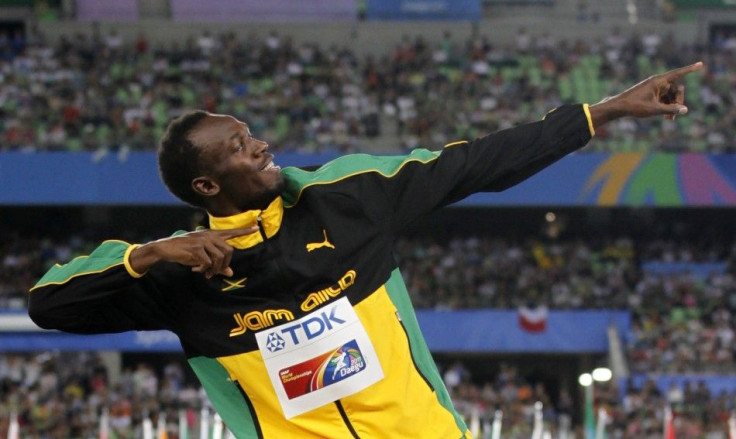Championships Close with Rule Debate Raging

There were tears and glory, a solitary world record and athletics firsts. There was even a Daegu curse. But for most, the story of the 13th world athletics championships will be disqualifications.
Drama, of one kind or another, was ever-present against a back drop of velvet mountains draped in mist.
Central to it all, good or bad, was the king showman of the sport -- the world's fastest man Usain Bolt.
Athletics' controversial no-second-chances rule on false starts deprived South Korean fans at the stadium, and millions watching worldwide, the chance to watch the Jamaican compete in the blue riband 100 meters final.
Anxiety caused him to burst from the blocks a split second early and that was it. The sport's biggest draw card left the track and his compatriot and training partner Yohan Blake took his title in an anti-climactic race.
Bolt redeemed himself by retaining the 200 meters title -- and then anchoring the 4x100m team to a world record 37.04 seconds in that final -- and all he wanted to do was look ahead.
Now I have to come to the Olympics in London, do my extreme best and blow people's minds, he told reporters.
But it was hard to look too far ahead when it was his expulsion from that earlier race which was splitting opinion down the middle, and sparking a debate which raged throughout the championships.
FAST AND LOOSE
It shows little sign of abating. One camp deems it ludicrous that any sport would happily discard its biggest name from its most prestigious event, and wants the rules for false-starting revisited.
The other side of the argument insists, simply, that rules are rules and they are there for a reason.
We have the rules, they're pretty clear, we don't play fast and loose with them simply because you get high profile DQs. There is no preordained outcome, London 2012 Olympics chief and former elite runner Sebastian Coe said.
The sport's governing International Association of Athletics Federations (IAAF) received a mountain of feedback.
I don't think anybody was happy to see Usain Bolt disqualified, IAAF competitions director Paul Hardy told Reuters. He is by far and away the biggest name in our sport. We need him.
For now, though, the one-false-start-and-you're-out rule would seem to be set in stone certainly for next year's London Olympics.
IAAF president Lamine Diack insists there will be no changing or bending of the rules to prevent big names being disqualified.
No chance, the (IAAF) president said. I work for this rule. I like very much this rule, I vote for having this rule.
(In the past) all athletes have the possibility to have one (false start), so you can have eight. Think about television... it was disturbing to have everybody able to make a false start.
World record-holding 110 meters hurdler Dayron Robles was also disqualified. His crime was bumping Chinese rival Liu Xiang along the blue Daegu track.
NO SYMPATHY
Diack had no sympathy for him either. He has to be out... it is the rule.
It would take the hardest of hearts to not find sympathy for double-amputee Oscar Pistorius, however.
The 24-year-old was sacrificed in South Africa's pursuit of a world 4x400 relay medal, despite helping his country to a national record in the qualifying heats.
Pistorius, who runs on carbon blades having had his lower legs removed as a baby, was the first amputee to compete at the world championships.
Pretty Guttered was his brief response on Twitter to being dropped for the final.
At some visceral level, though, Pistorius redefined the concept of athletic achievement at these championships.
It was a pity only around 10,000 spectators witnessed him qualify for the 400 meters semi-finals, for those who did were rewarded with a memorable mental postcard.
Memorable, too, was the cover curse which lurked around the athletes' village until it was broken by Sally Pearson.
The Australian danced a jig on the cover of the world championships' program after winning the 100 meters hurdles gold. Pearson had been the cover star Saturday and therefore supposedly subject to the Daegu curse, which meant the featured athlete has failed to win their event in seven out of the eight days of the championships.
Despite claiming such names as Bolt, Robles and pole vault queen Yelena Isinbayeva, it disappeared into the ether as the event wound to a close.
Bolt's face filled the front page of Sunday's program. With a world record performance, he once again had the final say.
© Copyright Thomson Reuters 2024. All rights reserved.











